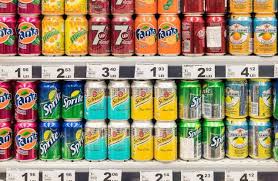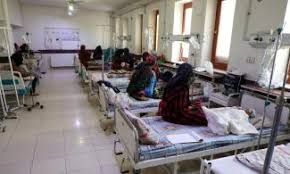The National Action on Sugar Reduction (NASR) coalition has called on the federal government to promptly increase the tax on heavily sugared drinks, commonly referred to as sugar-sweetened beverages (SSBs) to a prohibitive level.
According to a report, 60 million people (30 percent) out of Nigeria’s 200 million population are classified as overweight while 15 percent as obese.
The group noted that the current tax of N10 per litre on sugar-sweetened beverages (SSBs), implemented with the Finance Act of 2021, is no longer sufficient to reduce the excessive consumption of soft drinks, malt beverages, and other sugary drinks that significantly contribute to preventable, life-threatening chronic diseases.
The coalition is advocating for a N130 per litre tax on the SSBs.
While addressing a rally in Abuja at Jabi Lake Park neighbourhood to commemorate the 2024 World Obesity Day on Saturday, NASR coalition’s Health Communications Specialist, Omei Bongos-Ikwue said: “We urge the government to implement higher taxes on sugary drinks.
The goal of this pro-health tax is to protect more Nigerians from the risks of obesity, alleviate the burden on the healthcare system, and promote a healthier society.”
She emphasized that Nigerian policymakers should consider the World Health Organization’s (WHO) warnings about the widespread obesity crisis affecting over 1 billion people globally.
Pointing out that excessive caloric intake, primarily from SSBs, significantly contributes to obesity, posing a major health threat, she said: “Presently, one in eight people worldwide grapples with obesity, with alarming statistics revealing that 30% of Nigerians are overweight and 15% are classified as obese.
Scientifically linked to abdominal obesity, SSBs are identified as a key driver of cardiometabolic diseases, including heart disease, cancer, and type 2 diabetes.
“What we are advocating for is that the Government should not shirk its responsibility on this by helping Nigerians to control the consumption of these beverages through tax.
Looking at the cost of the life-threatening diseases attached to the SSBs, we all know that our economy is already stressed and things are tough, it is only proper that we don’t willfully contribute to our economic strains by contracting these avoidable life-threatening diseases through excessive consumption of SSBs.
“Diabetes is not like malaria that can be treated and in few is gone, treating diabetes is stressful as patients keep buying drugs, every day, every month and making hard choices between paying certain bills and buying the drugs
“This has actually pushed families into poverty because of the cost of containing these chronic diseases”.
She also advised parents to desist from encouraging children to form the habit of preferring SSBs to water because of later life effects.
“It’s a question of knowledge as well. Parents need to know that indulging their children with SSBs is not healthy because they are more likely to develop the habit of a taste for sugar.
“When this happens, and growing up with the habit it will double their chances of getting diabetes when they get older.
“The key message is that the sugary drinks tax should be increased to a level that makes it prohibitive to buy.
This is to a point when the cost of sugary beverages reaches a level where consumers question why they would spend so much on something that has a cheaper and healthier alternative.
“In the long run, it is a win-win situation for the government that will have more revenue to deploy to other essential areas of governance and for a healthier population that will have funds to deploy to other pressing needs instead of managing chronic illnesses”, she added.
The NASR coalition representative noted that World Obesity Day is marked every 4th of March globally but had to be moved to Saturday and to the neighbourhood to create the needed awareness.
The rally featured an extensive awareness campaign, engaging choreography by volunteers, games, and informative factsheets aimed at enlightening the public










